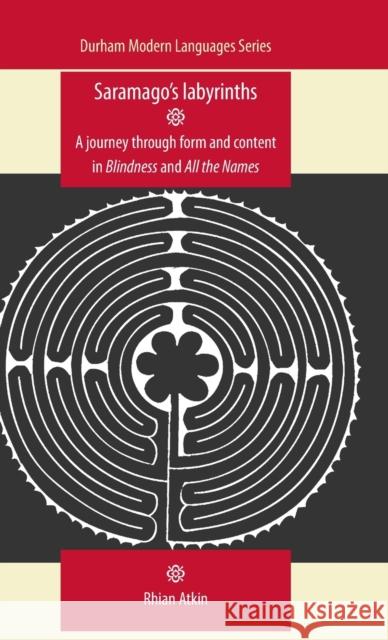Saramago's Labyrinths: A Journey Through Form and Content in Blindness and All the Names » książka
Saramago's Labyrinths: A Journey Through Form and Content in Blindness and All the Names
ISBN-13: 9780719086304 / Angielski / Twarda / 2012 / 176 str.
Saramago's labyrinths focuses on both the form and the content of Saramago's writing, paying particular attention to Ensaio sobre a Cegueira (Blindness) and Todos os Nomes (All the Names). This is the first book-length study to relate the very structure of Saramago's texts to the ideas that he continued to return to throughout his writing career. In addition to her close textual analysis of Blindness and All the Names, Atkin makes clear connections between these novels and Saramago's other literary work, identifying the ways in which Saramago causes the reader to return to and consider the philosophical, epistemological and ethical concerns and dilemmas that are recurrent in his literary output. At the same time, she explains and analyses how Saramago's work has come to be seen as paradigmatic of many of the formal strategies, philosophical debates, and topical obsessions of western society in the late twentieth and early twenty-first centuries, as well as situating it within the Portuguese cultural context. Blindness and All the Names appear frequently on reading lists for Portuguese studies, comparative literature courses and even literary theory courses, at undergraduate and postgraduate level. Atkin's jargon-free approach to Saramago's complex ideas, and her thorough understanding of Portuguese history, culture and society, make this an accessible yet challenging guide to Saramago's fiction, for students and scholars with or without prior knowledge of the Portuguese context. Atkin offers a close, comparative analysis of the structure of Saramago's writing and suggests that the labyrinth pervades the Portuguese Nobel Laureate's work, both in the form of the text, and as a literary and philosophical trope.











